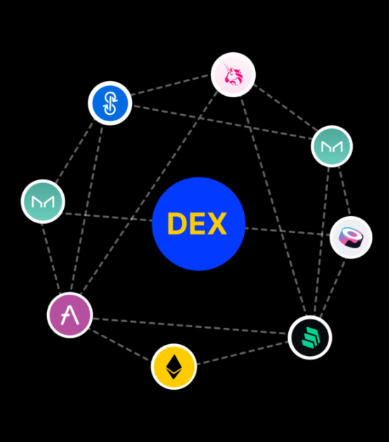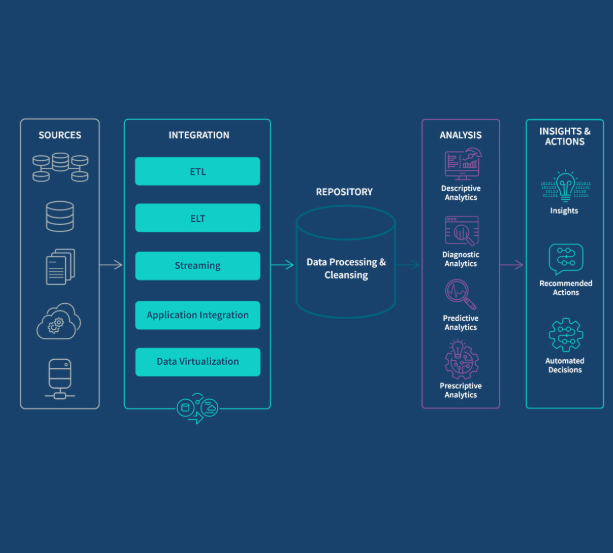
The integration of AI agents into legal document management has significantly transformed the legal industry, enhancing efficiency and accuracy in document handling. With the constant influx of data and the demanding nature of legal requirements, AI tools are optimizing workflows, allowing legal professionals to focus on more strategic tasks. This blog will explore how AI agents are reshaping the way legal documents are managed and what to consider when developing and implementing AI-driven solutions in legal practices.
Applications of AI Agents in Legal Document Management
AI agents are making legal document processing more efficient and precise. Here are some key applications that are helping law firms and corporate legal teams streamline their operations:
1. Contract Review and Analysis
AI agents simplify contract analysis by automatically identifying key terms, obligations, and potential issues. They help compare contracts with past case data and legal standards, making it easier to spot inconsistencies and suggest revisions to enhance compliance.
2. Legal Research and Case Law Analysis
By leveraging large language models (LLMs), AI agents quickly analyze case law, legislation, and legal documents. They assist legal professionals by providing relevant precedents, legal doctrines, and context-specific recommendations, thus speeding up research and improving the quality of legal arguments.
3. Document Drafting and Creation
AI agents assist in drafting legal documents by generating templates and language that comply with legal standards. Whether it’s for NDAs, employment contracts, or lease agreements, these tools ensure documents are up to date with current regulations, reducing manual effort and increasing consistency.
4. Document Management and Organization
AI tools automate the organization, categorization, and indexing of legal documents, making it easier to store, search, and retrieve important files. Additionally, they can summarize lengthy legal texts, saving time and allowing professionals to focus on higher-priority tasks.
5. Enhanced Client Communication and Service
Chatbots and virtual assistants powered by AI offer instant responses to common legal queries, helping clients stay informed about case progress. These AI tools can start consultations, gather preliminary information, and provide basic legal advice, improving customer service and client engagement.
6. Predictive Analytics and Litigation Support
AI agents analyze past case outcomes to predict potential results in ongoing litigation. This allows legal teams to make data-driven decisions, improving legal strategies. AI also supports e-discovery by quickly scanning digital records for relevant evidence, reducing both time and costs associated with litigation.
Developing AI Agents for Legal Document Management
Creating AI agents for legal document management involves several key steps that combine machine learning, natural language processing (NLP), and automation. Here’s a simplified process for developing AI agents:
Step 1: Define Objectives
Clearly identify the goals for the AI agent, such as contract analysis, clause recognition, or compliance checks. Establish the relevant laws, regulations, and case precedents that the AI will need to process.
Step 2: Choose the Right Language Model
Select a language model capable of handling legal terminology effectively. Partnering with an AI development company can help fine-tune models for tasks like document summarization and legal reasoning.
Step 3: Collect and Prepare Legal Data
Gather high-quality legal data, such as contracts, case law, and statutes. Ensure the data is clean, well-formatted, and properly preprocessed to enable the AI model to generate accurate outputs.
Step 4: Train the Model
Fine-tune the selected language model on the collected legal data. This will enhance the model’s ability to understand legal jargon, document structures, and reasoning processes essential for legal work.
Step 5: Build the AI Agent
Develop a modular AI system with functionalities like contract analysis and compliance checks. Integrate the language model into the agent to ensure it performs tasks accurately and efficiently.
Step 6: Generate and Structure Outputs
Create algorithms that allow the AI agent to provide detailed document reviews, summarize legal texts, and offer actionable insights for legal professionals.
AI Agents vs. Traditional LLMs in Legal Document Management
AI agents and traditional LLMs serve different purposes in legal document management. While LLMs rely on large datasets to generate text-based outputs, AI agents are designed to perform specific tasks with more targeted and context-aware capabilities. By integrating AI agents, legal professionals can leverage these tools for more comprehensive, efficient, and tailored document management solutions.
Benefits of AI Agents in Legal Document Management
AI agents bring significant advantages to the legal industry, particularly in document processing. Some of the key benefits include:
1. Stronger Risk Analysis and Due Diligence
AI systems can quickly scan large volumes of legal documents, identifying potential risks, inconsistencies, or compliance issues that human reviewers might overlook. This enhances risk management and due diligence processes.
2. Faster Legal Research and Insights
AI agents streamline the process of analyzing case law and regulations, providing quick access to relevant legal information. This speeds up research and helps legal teams gain insights that would otherwise take much longer to uncover.
3. Cost Efficiency
By automating routine tasks and increasing productivity, AI agents help reduce the operational costs associated with legal document management. Legal teams can focus more on high-value work, improving overall efficiency.
4. Enhanced Client Experience
AI-powered tools improve client service by offering faster responses, better case tracking, and more efficient communication. Clients benefit from quicker access to information and more personalized service, enhancing overall satisfaction.
Emerging Trends in AI Agents for Legal Document Management
As technology continues to advance, several trends are emerging in the integration of AI in legal document management:
1. Blockchain Technology
Blockchain offers secure and immutable records, making it ideal for managing sensitive legal documents. It can enhance the transparency and security of document storage, providing an additional layer of protection for clients.
2. Remote Work Technologies
With the rise of remote legal work, AI solutions are being integrated with secure collaboration tools, such as encrypted video conferencing and cloud-based document management platforms, to facilitate efficient workflows.
3. AI-Driven Legal Workflows
Artificial Intelligence continues to evolve, enabling legal teams to automate complex workflows like document review, data extraction, and predictive analytics, all of which improve the efficiency and accuracy of legal operations.
4. Internet of Things (IoT)
IoT devices are being used to track and secure valuable legal documents in real time. By enhancing document security and providing verification features, IoT helps ensure the integrity of the legal chain of custody.
5. Sustainability in Legal Tech
Legal firms are increasingly adopting eco-friendly practices, such as paperless workflows and digital signature tools. AI technology plays a key role in these initiatives by reducing the environmental impact of traditional legal document management.
Overcoming the Challenges of AI Integration in Legal Document Management
While AI integration offers significant benefits, it comes with its own set of challenges. Legal organizations need to address the following issues:
1. Data Privacy and Security
Since legal documents contain sensitive information, maintaining privacy and security is critical. AI solutions must implement advanced encryption methods and real-time threat detection to ensure data protection.
2. Ethical Use of AI
To maintain trust and comply with regulations, AI systems must operate ethically. This involves ensuring transparency in decision-making, addressing biases in the AI models, and regularly auditing AI outputs for fairness.
3. Integration with Legacy Systems
Many law firms rely on outdated systems that are not compatible with modern AI technologies. To ensure seamless integration, AI solutions must be designed to work with existing infrastructures, or firms should invest in modernization efforts.
4. Change Management and Adoption
Adopting AI tools requires overcoming resistance from staff who are used to traditional methods. To promote successful adoption, law firms should provide training and support, highlight the benefits of AI, and ensure that leadership is fully committed to the transition.
5. Training and Ongoing Support
Proper training is essential to help legal professionals use AI tools effectively. Continuous education and responsive support teams are necessary to ensure that AI systems are being used to their full potential.
Final Thoughts
AI agents are transforming the legal profession by automating document management tasks, improving accuracy, and streamlining workflows. As technology evolves, the role of AI in legal document management will continue to grow, offering even more advanced solutions. Law firms that successfully integrate AI agents into their processes will benefit from enhanced efficiency, reduced operational costs, and improved client service, positioning themselves for success in an increasingly competitive digital legal landscape.















































